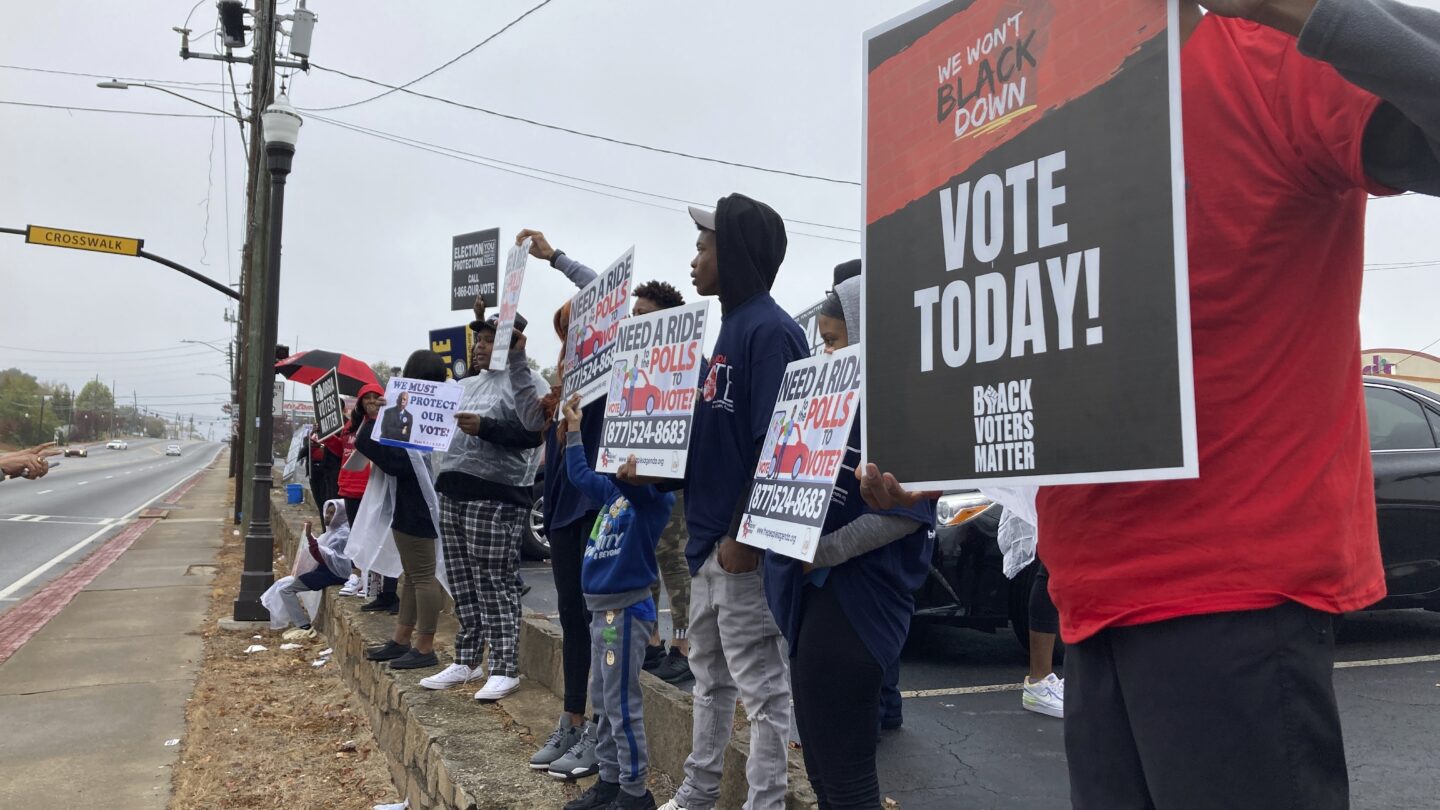By this point, Jackson was familiar with the judge presiding over the case. He had already testified multiple times in other legal cases. Throughout his tenure as the bishop, he’s been active in the secular sphere of voting rights.
African Methodist Episcopal Church Bishop Reginald Jackson announces a boycott of Coca-Cola Co. products outside the Georgia Capitol on March 25, 2021 in Atlanta. (AP Photo/Jeff Amy, File)
“When I was assigned as the bishop of Georgia in 2016, I was stunned and I was angry because the Black turnout in the 2016 election had been very low,” Jackson says.
That election, Black turnout in the U.S. sharply declined to 59.6% — the first decline in 20 years.
Then, in 2017, 560,000 registered voters were erased from voter rolls by then-Secretary of State Brian Kemp — 107,000 of those people were removed because they were deemed “inactive” having not voted in any elections over seven years.
In the 2018 election, Stacey Abrams narrowly lost the race for governor to Kemp. It was a moment that reenergized Jackson and other faith leaders to get involved in voter mobilization.
“That made us absolutely determined that we would do all that they could to get out our vote, because a lot of those who had their names withdrawn happen to be people of color, members of our denominations, and members of our community,” he says.

Activists rally for voting rights at the end of a Black church tradition known as “Souls to the Polls” event in Decatur, Ga., Sunday, Oct. 30, 2022. (AP Photo/Sudhin Thanawala)
Various voter mobilization efforts helped contribute to record turnout in the 2020 election. But months later, the Georgia legislature passed S.B. 202, a voting law that restricted some of the practices that Black churches used to help their congregants…
Read the full article here

